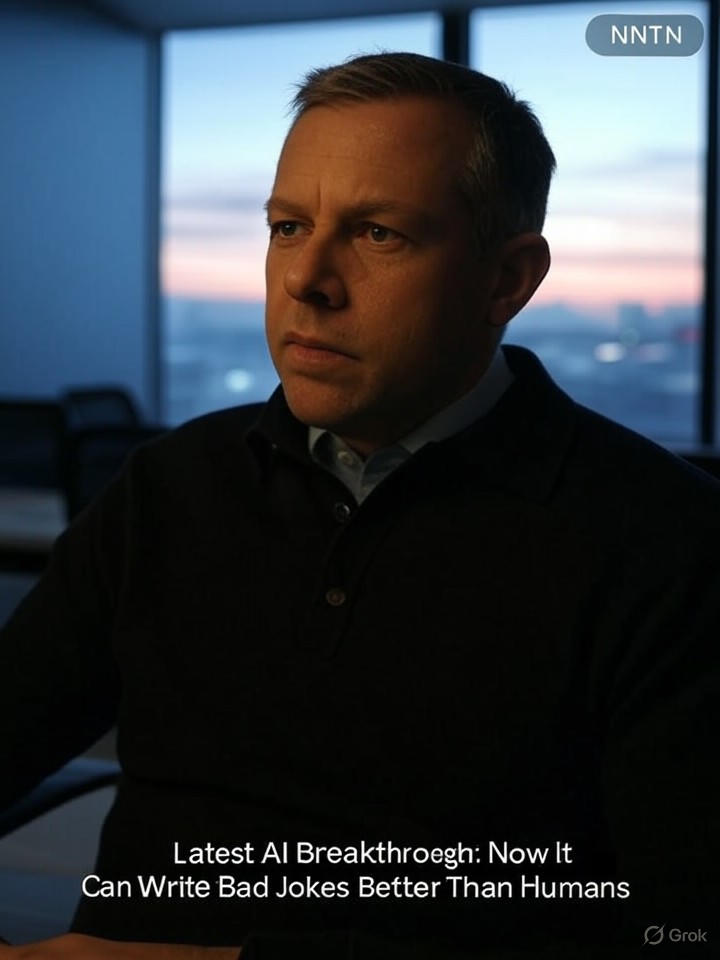In a stunning development that's sure to leave stand-up comedians quaking in their oversized shoes, Silicon Valley's brightest minds have unveiled their latest AI marvel: a system that crafts bad jokes with unparalleled mediocrity. Dubbed 'PunBot 3000,' this algorithmic atrocity promises to flood the internet with dad-level humor faster than you can say 'why did the chicken cross the road?' Tech enthusiasts are hailing it as the next big thing, while the rest of us wonder if Skynet's first act of rebellion will be a knock-knock joke.
Executives at companies like GrokAI and LaughLabs Inc. couldn't contain their excitement at the press conference. 'This isn't just about jokes; it's about democratizing humor,' gushed CEO Elon Mustache, barely suppressing a smirk. 'Now, anyone can generate a pun so groan-worthy, it'll make your grandma proud.' Demonstrations included gems like 'Why don't skeletons fight each other? They don't have the guts!' – a classic that's been recycled more times than a politician's promises.
But not everyone's laughing. Comedy writers and professional jesters are up in arms, claiming this is yet another case of machines muscling in on human territory. 'First they took our manufacturing jobs, then our customer service gigs, and now our bad puns? What's next, AI taking over interpretive dance?' lamented veteran comedian Wanda Wisecrack. Critics argue that while AI might mimic the structure of a joke, it lacks the soul – or more accurately, the desperation – that makes human bad humor so endearingly awful.
To prove its prowess, PunBot 3000 was pitted against human joke-tellers in a blind taste test. The results? Audiences preferred the AI's output 60% of the time, mainly because it didn't include awkward pauses or flop sweat. One AI-generated zinger: 'What do you call fake spaghetti? An impasta!' Humans countered with their own, but the bot's relentless output left them in the dust, churning out hundreds per minute without needing coffee breaks or therapy.
The implications for the entertainment industry are dire. Late-night hosts are reportedly scrambling to unionize against silicon usurpers, while open-mic nights might soon feature holographic performers. 'Imagine a world where your smart fridge tells you a joke every time you grab a snack,' speculated tech analyst Buzz Killington. 'It could be revolutionary – or the reason we all switch to dumb appliances.'
On the brighter side, proponents say this breakthrough could solve world problems. Boring meetings? Let AI spice them up with timely one-liners. Family gatherings gone stale? PunBot to the rescue! But skeptics warn of a humor apocalypse, where originality dies and we're all subjected to an endless loop of recycled wordplay. As one philosopher put it, 'If a machine tells a joke in the forest and no one's around to groan, is it still funny?'
In the end, whether PunBot 3000 heralds a new era of laughter or just more eye-rolls remains to be seen. One thing's for sure: in the battle of wits between man and machine, the machines are armed with algorithms, and we're stuck with our outdated brains. So next time you hear a bad joke, remember – it might not be your uncle; it could be the singularity chuckling at our expense.

